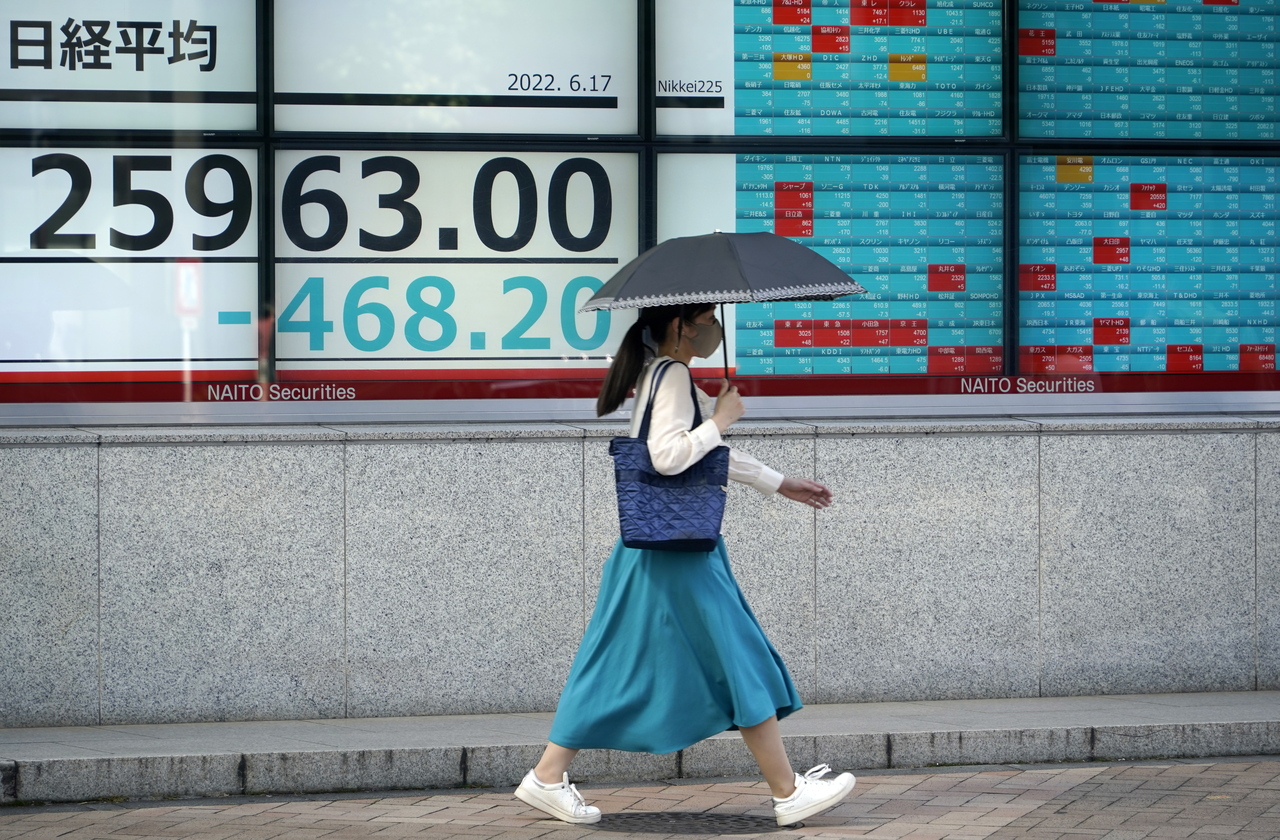Singapore, most Asian markets end rough week down on recession fears
Sign up now: Get ST's newsletters delivered to your inbox

A woman walks past a stock market indicator board in Tokyo on June 17. Japanese shares slid about 5 per cent.
PHOTO: EPA-EFE
SINGAPORE - Stocks in Singapore and the rest of Asia closed the week underwater amid fears of an economic downturn.
This followed a week of monetary policy tightening to fight high inflation in the world’s largest economies.
The Straits Times Index closed Friday (June 17) at 3,098.09, down by almost 2 per cent across the week, tracking its peers across the region.
Japanese shares slid about 5 per cent, while the Malaysian, Thai and Korean stock exchange indices slipped through the week.
China and Hong Kong were the exceptions. Stock indices there managed to buck the regional trend with a steady performance.
Markets are rounding off a week buffeted by interest rate increases, including the Federal Reserve’s biggest move since 1994, a shock Swiss National Bank hike that energised the franc and the latest boost in British borrowing costs.
Central banks are taking action to tame high levels of inflation driven by labour constrains and supply chain bottlenecks stemming from the pandemic.
Prices have also been fuelled by shortages of commodities from grains to metals as a result of the Russia-Ukraine war.
But the Central Banks also risk doing too much to cool demand, and this is fanning fears of recession in some of the world’s largest economies.
Already, private-sector analysts in Singapore have shaved their growth forecast for 2022 to 3.8 per cent from 4 per cent for the full year, according to a quarterly survey released by the Monetary Authority of Singapore (MAS) last week.
Rate hikes are draining liquidity, sparking losses in a range of assets. Global stocks face one of their worst weeks since the pandemic-induced turmoil of 2020. Investors are focused on “all of the half-empty things and how much narrower” the Fed’s path is in trying to stick a soft landing, Ms Carol Schleif, deputy chief investment officer at BMO Family Office, said on Bloomberg TV.
Spreads on US junk-rated corporate bonds hit levels last seen in 2020, a sign that investors expect economic woes to sap company performance.
Oil wavered as traders weighed the prospect of slower economic growth against tight supplies, while gold pared a rally.
*Additional reporting by Bloomberg.


